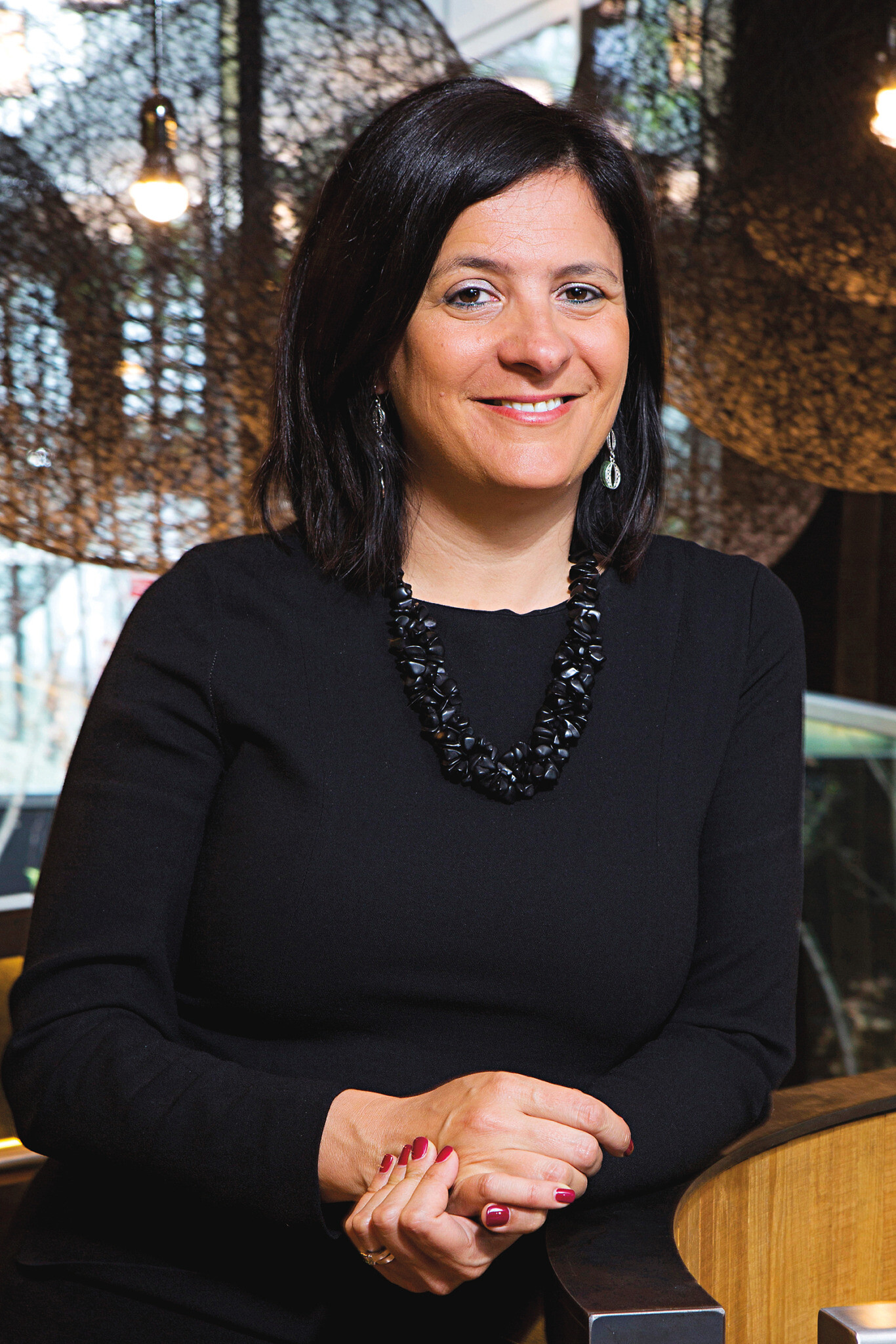How the virus has changed flexible work forever
When it comes to flexible working environments, there are benefits for employers and employees, social enterprise entrepreneur Karen Mattison tells Candice Krieger
What a difference a decade makes. When social enterprise entrepreneur Karen Mattison MBE started campaigning for flexible working 15 years ago, it was seen as a risky idea and one that would never catch on. Part-time work came with a stigma. Senior part-timers in particular were sitting in the shadows.
Fast forward to now and the picture couldn’t be more different. Covid-19 has thrust us all into flexible working – at every rung of the ladder – permanently transforming the way we work. Some 13 million people are intending to ask for flexible working once the pandemic has passed.
“Although there have been huge changes in the way we work over the past decade, none of us could have predicted how centre stage flexible working would become for everyone as it is now,” says Mattison, who had been a key player in the pre-coronavirus evolution of the workplace, from a traditional nine-to-five environment into its more flexible form.
Get The Jewish News Daily Edition by email and never miss our top stories Free Sign Up
“When we look back, I think this period will be seen as the tipping point. In many ways, flexible working is the art of the possible, and now we are doing things that we never imagined were possible. Work has changed forever as a result.”
Oxford University graduate and mother-of-three Mattison co-founded flexible working consultancy, Timewise, in 2012, and its predecessor Women Like Us, to champion the concept of flexible working after she struggled to find a senior role with flexibility.
“There are three different types of flexible working – where we work, when we work and how much we work,” explains Mattison, who has held senior positions in marketing, communications and business development.

“Since corona took hold, even those who thought they could never work anywhere but their office, have been thrown into the deep end of flexible working, and while for many, it may not have been a choice, it’s working incredibly well. It is hard to imagine Covid-19 without the technology to support remote working. Clearly not everyone can flex on where they work – frontline workers, hospitality and many retailers – but lots can, and it is an experiment on an unprecedented scale.”
Through its consultancy arm, Timewise advises the nation’s leading companies to help them create and implement successful flexible working strategies. They include Google, the NHS, John Lewis and Tesco. “And more have been coming to us now that they need to make their unforeseen flexible working arrangements work.”
- Listen to the JN Podcast here: Ashley Blaker on Liverpool and kosher restaurants reopen
Timewise is offering a Covid-19 support programme of free webinars and toolkits to help businesses develop future-fit flexible workplaces.
“While many business leaders and managers had already accepted that people could work from different locations, many more had not accepted that senior jobs could be done less than part-time,” says Mattison. Pre-corona virus, one million UK managers/business leaders were working part-time, and necessity has now meant that people at all levels of businesses may have reduced hours, be it for budget constraints or other personal commitments. “They have adapted and continue to deliver for their organisations.”
However, the appetite for flexible working is not a new phenomenon. For years, the UK workforce has wanted more ‘flex’. The Timewise Flexible Job Index for 2019, a study of five million UK job ads, which reveals what proportion of UK vacancies offer flexible work, and at what levels of pay, showed that 87 percent of UK employees want some form of flexibility, yet flexible jobs made up just 15 percent of vacancies in the UK last year. While this was up from 9.5 per cent in 2016, it was still far short of the demand. Individual and workplace barriers had stood in the way of more people embracing flexible working. Until now.
Mattison has long been committed to proving that flexible work also means committed, ambitious and business-critical, and has spent years campaigning for senior-level flexibility via the Timewise Power 50 – an annual list that honours men and women who have made a success of flexible working.
Among this year’s winners was Marc Nohr, chairman of Fold7, group chief executive of Miroma Agencies and chairman of the London charity/arts venue, JW3. Nohr is the first male chief executive of a large business to announce (pre-Covid) that he works a four-day week.
“All the data shows us that people have wanted flexibility more and more – men as much as women if you include remote working as well as part-time and flexible hours. Flexibility had become a deal-breaker for so many of us in the workplace. The appetite has been there, but the success stories will help all rungs of the ladder.”
The benefits of flexible working are well-documented: better staff retention and recruitment – people want to work for flexible employers – improved gender pay gap and reduced overheads through remote working.
Working flexibly has enabled Mattison to set up a second social enterprise, Cook for Good, which she launched last year with fellow Jewish entrepreneur Robinne Collie. They work with corporate and community partners to bring people together through cooking for those in need.
“We take corporate teams into shelters and other community sites to cook together. There is so much incredible cooking going on in our communities and we have been supporting where we can. We are also offering Zoom classes both for charities for their socially isolated clients, and for businesses (Cook & Connect) as a way of helping their teams stay engaged with a fun activity while they are at home – cooking dinner with your colleagues!”
www.timewise.co.uk

Thank you for helping to make Jewish News the leading source of news and opinion for the UK Jewish community. Today we're asking for your invaluable help to continue putting our community first in everything we do.
For as little as £5 a month you can help sustain the vital work we do in celebrating and standing up for Jewish life in Britain.
Jewish News holds our community together and keeps us connected. Like a synagogue, it’s where people turn to feel part of something bigger. It also proudly shows the rest of Britain the vibrancy and rich culture of modern Jewish life.
You can make a quick and easy one-off or monthly contribution of £5, £10, £20 or any other sum you’re comfortable with.
100% of your donation will help us continue celebrating our community, in all its dynamic diversity...
Engaging
Being a community platform means so much more than producing a newspaper and website. One of our proudest roles is media partnering with our invaluable charities to amplify the outstanding work they do to help us all.
Celebrating
There’s no shortage of oys in the world but Jewish News takes every opportunity to celebrate the joys too, through projects like Night of Heroes, 40 Under 40 and other compelling countdowns that make the community kvell with pride.
Pioneering
In the first collaboration between media outlets from different faiths, Jewish News worked with British Muslim TV and Church Times to produce a list of young activists leading the way on interfaith understanding.
Campaigning
Royal Mail issued a stamp honouring Holocaust hero Sir Nicholas Winton after a Jewish News campaign attracted more than 100,000 backers. Jewish Newsalso produces special editions of the paper highlighting pressing issues including mental health and Holocaust remembrance.
Easy access
In an age when news is readily accessible, Jewish News provides high-quality content free online and offline, removing any financial barriers to connecting people.
Voice of our community to wider society
The Jewish News team regularly appears on TV, radio and on the pages of the national press to comment on stories about the Jewish community. Easy access to the paper on the streets of London also means Jewish News provides an invaluable window into the community for the country at large.
We hope you agree all this is worth preserving.
-
By Brigit Grant
-
By Laurent Vaughan - Senior Associate (Bishop & Sewell Solicitors)
-
By Laurent Vaughan - Senior Associate (Bishop & Sewell Solicitors)
-
By Laurent Vaughan - Senior Associate (Bishop & Sewell Solicitors)
-
By Laurent Vaughan - Senior Associate (Bishop & Sewell Solicitors)






















